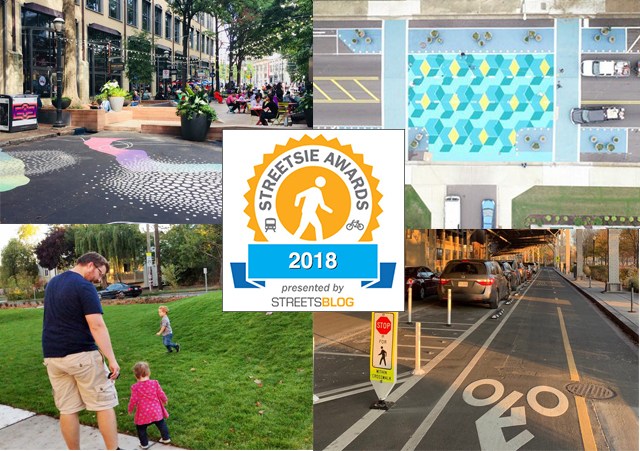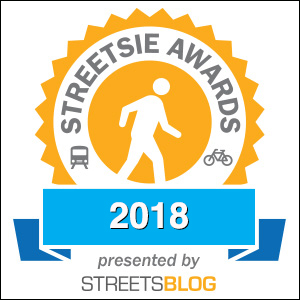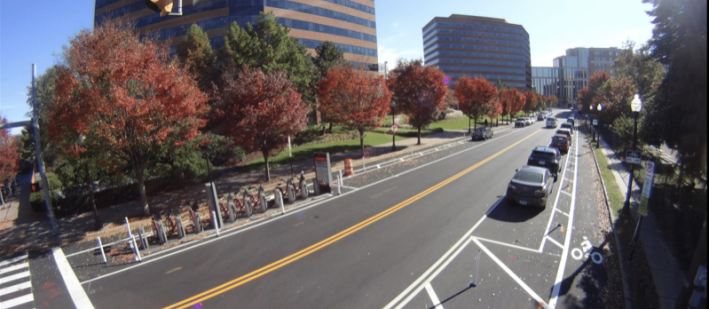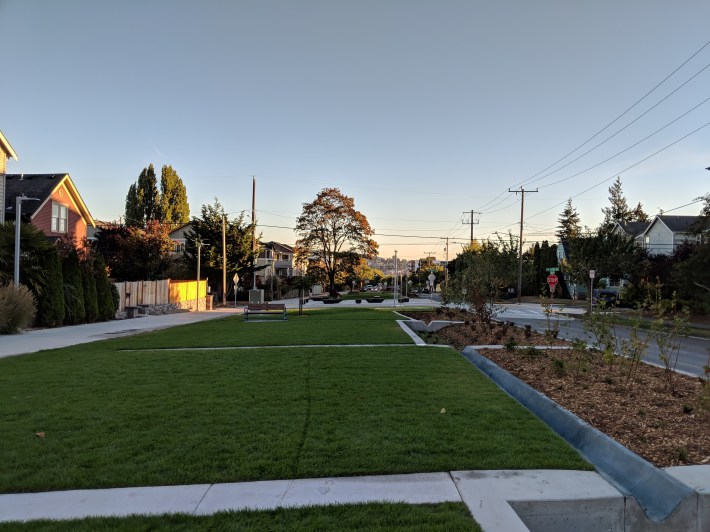In 2018, streets got safer, more beautiful and more inclusive — in a few cities at least. We highlighted six of the best street redesign projects in the country in our annual Best Urban Street Redesign Competition.
Now we're ready to announce the winners of our highest honor of the year — the 2018 Streetsie Award for Best Urban Street Redesign. Our readers weighed in and chose ...
People's Choice: Veitch Street in Arlington County, Virginia
Congratulations to Arlington, which received more than 1,000 votes for its road diet/protected bike lane project on Veitch Street. One impressive aspect of the project is the county used a Capital Bikeshare Station as "protection" in place of parking spaces.
Dara Soum, a professional engineer with the county, told us that this project was one of three road diet/protected bike lane projects completed in 2018, using "tactical urbanism" and "quick-build solutions." Previously the street had regular bike lanes.
You'll notice that this project didn't require much physical infrastructure and is mostly accomplished using paint and plastic bollard, but because of the parking, provides bicyclists sturdy, physical protection. It provides a link between a commercial district in the Courthouse area and a popular trail, adding an important link in the area's bike network.
"Whenever there's a repaving, we’re always looking at opportunities for reconfiguration," Dan Nabors, with Arlington County's Division of Transportation. "How can we loop in a better balance between modes."
Our runner up in the voting was Memphis's Manassas Street with 630 votes.
As we do every year, the Editors weighed in and selected their own favorite from the pack. We choose:
Editors' Choice: Seattle's 14th Avenue NW
Seattle completed about a half dozen street redesign projects that all could have been worthy of inclusion in this competition. We thought this project was particularly innovative. On a short section of 14th Avenue NW, the city actually tore up part of the street — after removing some parking spaces — and created a two-block green space, Gemenskap Park. The park contains 11 trees and is designed to capture and clean stormwater, which makes the ocean cleaner and the neighborhood nicer. The entire project cost about $3 million.
Imagine the possibilities if more cities were willing to remove parking spaces to add green space.
Congrats to all the cities that were chosen to compete and thanks to everyone who voted. We're excited to see how leading cities build upon these successes in 2019.









